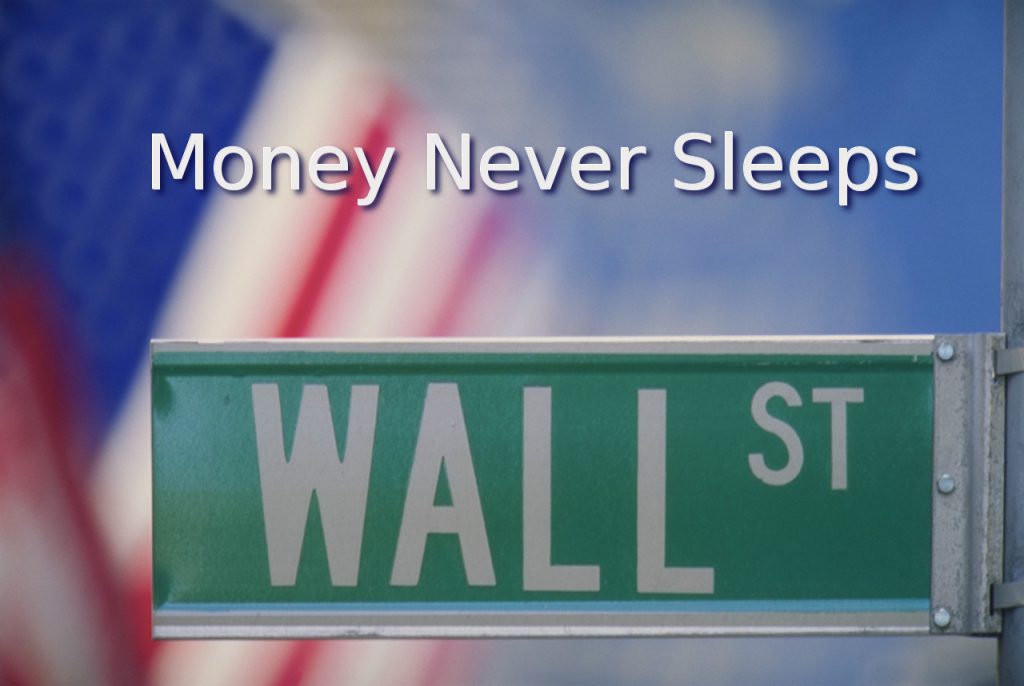There is real life after Wall Street; opportunities to do something most of us would consider socially valuable. Market momentum within our economy has slowed considerably in recent years but the aspirations of many of the “streets” notorious denizens have not. Take Wall Street — a popular two-word epithet today. No one revels in the misfortunate of others, especially in a down economy, but reduced momentum has forced layoffs in the thousands on Wall Street. There is a plus side however: many of the unemployed now seek opportunities in other sectors of the economy to create value for society and not just grotsque wealth for a few. This is a major shift in career emphasis.
Many bright young people, who earlier thought of starting their own companies or even pursuing careers in public service, became intoxicated by the financial success they felt they could achieve in the world of high finance. In 2006 and 2007, they flocked to Wall Street. In military parlance, “success did follow their flag.”
Five, even six-figure bonuses were common, condos facing Central Park were the address to have, and high-end consumption was a bright spot in the local city economy. Less than six-months later as the economy began to tank, reality intruded. Living standards plummeted and thousands of yesterday’s high achievers had to consider life after Wall Street. Hiring was out — layoffs were in. There was bitterness and buckets of disappointment. However, the ray of light in this turmoil was that old dreams resurfaced among those who previously considered starting their own businesses. The entrepreneurial spirit was still alive.
Here you had a class of refugee accustomed to earning a good living. They understood the power of mindset as the key to success they had enjoyed and to any success they might enjoy in the future. The logical next step for many former employees was “technology and entrepreneurship” says Matt Harris, a managing partner at Village Ventures, a Manhattan-based venture-capital firm. Apparently, the similarities between the world of tech start-ups and finance were striking: “the adrenaline, the high stakes and — for a lucky few — the outsized returns.”
These young high flyers realized that theirs was a failure beyond their control. They concluded that if failure was to be part of their future, then failure should be on their own terms. This is the mindset of the true entrepreneur, those responsible for the technological breakthroughs that produced the world’s most successful and innovative economy. “Entrepreneurship is about building a career for yourself that doesn’t rely on a large corporation and a boss to give you direction and give you security and give you a paycheck.”
In choosing to pursue opportunities in technology, these newcomers to the high technology sector could create something of enduring value. They knew, and had accepted, that the purpose of life on Wall Street was not to create value. Life in front of monitors with phones cradled to both ears was about creating lots of wealth for themselves and a narrow stratum of society. Under better economic conditions, they likely would have remained where they were. The lure of the deal had not diminished; only the opportunity to close them was no longer possible.
This class of economic refugee did not represent the average new entrant to the ranks of the unemployed. They were not ideal candidates for the Occupy Wall Street movement. Life on “The Street” meant they understood risk and reward and that success can be huge. Their talents, energy, mindset, and levels of commitment were therefore transferable. It is also fair to conclude that the teachings of famed entrepreneur and business philosopher Jim Rohn could have been bedtime reading for many of these new entrepreneurs. Rohn said, “There are two ways to face the future. One way is with apprehension; the other is with anticipation.”
Mindset is among the distinguishable qualities this group brought forward to new opportunity. Each of them realized that for every successful new venture they, or their former colleagues, might launch, there would be dozens, even hundreds, of failures. You had to play the odds and believe in your ability to close the deal.
Two locations benefiting from this exodus of talent are New York City and Silicon Valley. Those not attracted to the lure of a start up, deployed to such established giants as Google and Facebook. A recent article revealed that the new “status jobs” are not with the Goldman Sachs, rather with Google and Facebook.
The statistics are noteworthy: From 2008 to 2011, national employment in the financial services industry fell by 7.3 percent while high-tech employment excluding manufacturing jumped 7.1 percent, according to the U.S. Bureau of Labor Statistics. Moreover, a New York Times analysis of government data reveals “a 17 percent drop from 2008 to 2011 in the number of investment bank and brokerage firm employees in New York.” And, “the number of bankers aged 20 — 34 fell by 25 percent in the same period.”
Value added in New York was a 30 percent increase in high-tech employment between 2005 and 2010. There is life after Wall Street.
Following on the heels of those pushed out by managers looking at the bottom line, are others increasingly disillusioned by the vagaries of life in the financial services industry. Former colleagues are racking up successes in the city’s start-up tech industry and this is attractive to other bright people with, or without, an entrepreneurial bent. Success encourages others to take the plunge. A prerequisite to doing so, provided you are not being pushed out, is to get your head in the right place psychologically.
Accepting the challenge of change is inevitably about being in the right mindset. It takes mindset to exercise patience, to persevere, and to believe in your ability to succeed again.
Developments in technology start-ups in New York City are promising. Time will tell if this represents a real trend or just another fad. Meanwhile, perform your due diligence on several new enterprises launched by talent from Wall Street. Some of the more notable companies include Yipit, Bonobos, LearnVest, and SecondMarket. A word of advice: Reach out! Talk to those who stepped into the unknown. Ask what contributed to their success! Determine if you’ve got what it takes.
Rest assured, the founders of these success stories are students of the old adage, “If you want to add value or make a profit, find a problem and solve it. Find a niche in the market and fill it.” That is how you add value. A prime example is the founder and chief executive of LearnVest, Alexa Von Tobel. She filled a niche abandoned by the Merrill Lynch’s of the world: provide investment and planning advice for the middle class and the semi-affluent with under $250,000 dollars in assets available for investment. Von Tobel was featured on page B-1 of the Business Day section of the January 14, 2012 issue of the New York Times.
Whether you are making a transition from Wall Street, academia, manufacturing, or the corporate sector into launching your own enterprise, the reality is the same. These ex-financiers and stock analysts described here accepted a basic reality as they began to build lives and careers after Wall Street.
It is this: You do not control the economy. You do not control what customers or prospects might do. In fact, practically everything is out of your control. Once this settles in and you don’t panic, you’re ready to begin to accept full responsibility for your own fate.









